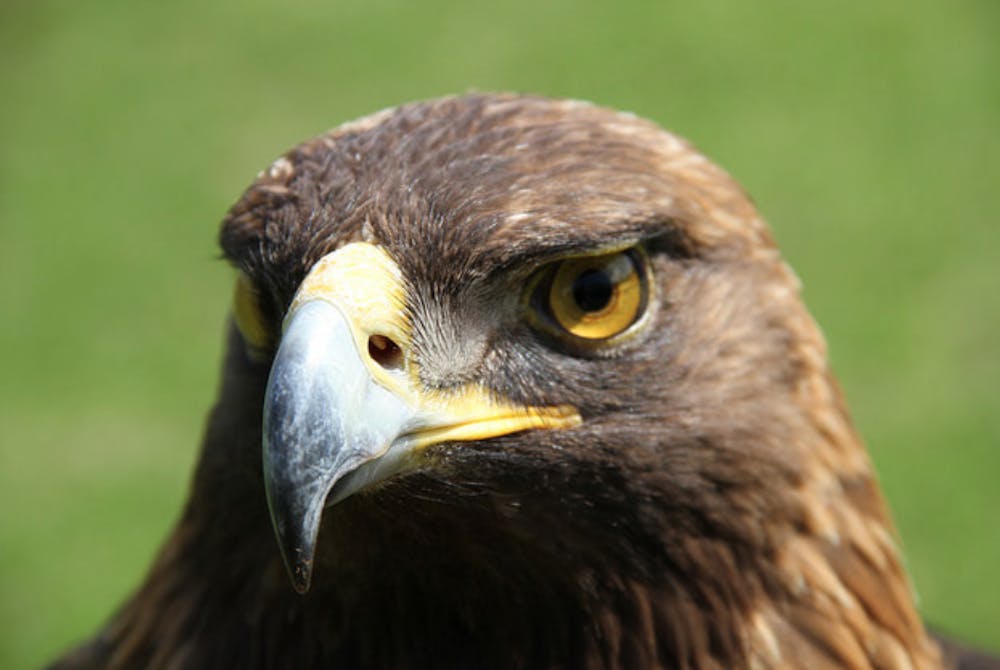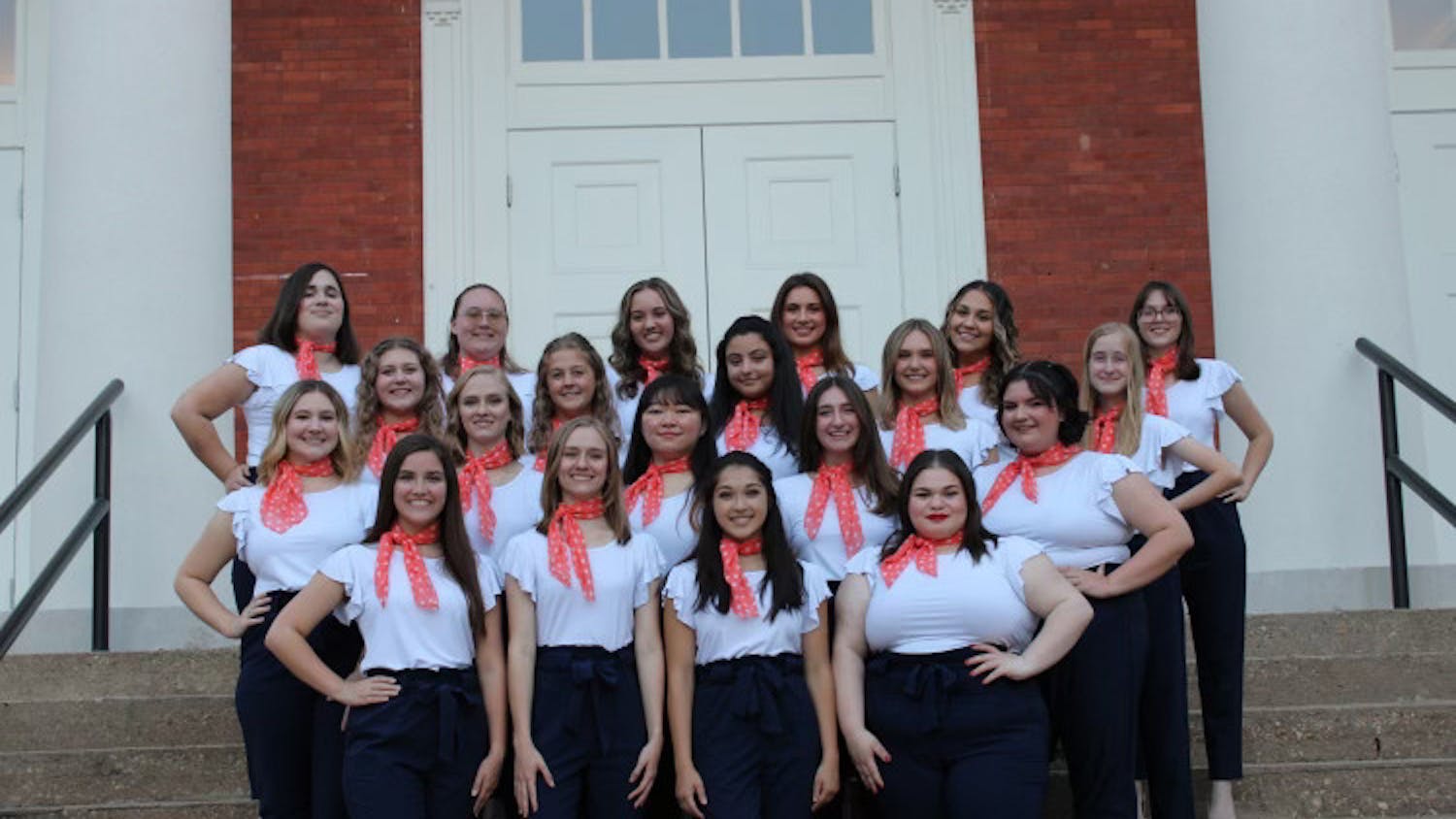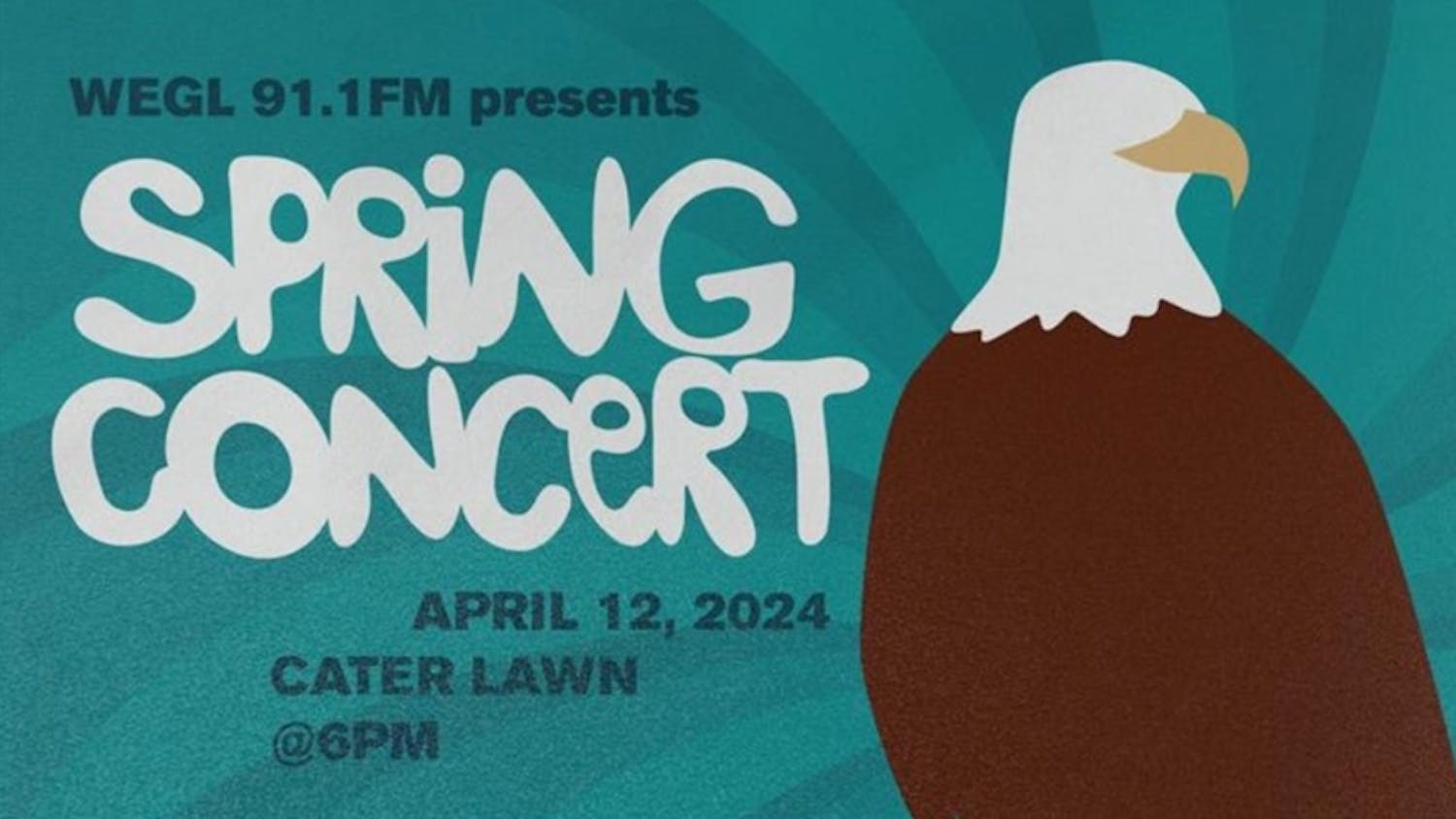AUBURN, Ala. (EETV) – Auburn’s beloved icon, Nova, War Eagle VII, will not fly during pre-game events during Auburn’s 2017 football season after Auburn University College of Veterinary Medicine faculty diagnosed the 18-year-old golden eagle with cardiomyopathy, a chronic disease of the heart.
Spirit, a bald eagle, will assume pre-game flight duties during the season, said Southeastern Raptor Center Director Dr. Jamie Bellah.
Following a routine checkup, it was determined Nova had an abnormal heart rhythm, and veterinary faculty, in consultation with the Cardiology Service in the Wilford and Kate Bailey Small Animal Teaching Hospital, performed a CT angiography on Nova.
“Nova has been diagnosed with cardiomyopathy, indicated by an enlarged left ventricle, decreased systolic function and supraventricular premature complexes (arrhythmia),” said Dr. Seth Oster, an avian veterinarian at the raptor center and the college’s Wilford and Kate Bailey Small Animal Teaching Hospital.
A CT angiogram showed areas of significant constriction of his right brachiocephalic trunk, one of the large blood vessels near Nova’s heart, as the cause of cardiomyopathy and arrhythmia, an irregular or abnormal heartbeat.
Nova was started on a combination of medications to prevent his condition from worsening. He is being monitored by raptor center staff and will receive examinations by Cardiology Service veterinarians.
“These areas of constriction can increase the systolic pressure of the heart so that Nova’s heart has to pump harder to move blood around his body,” said Oster. “This type of problem could have multiple causes, the most common of which in birds is atherosclerosis.”
Atherosclerosis is the hardening and narrowing of the arteries.
“Vessels that are constricted, like those that are seen in Nova’s scan, can have dangerous complications when put under increased stress from exercise,” said Dr. Seung-Woo Jung, an assistant professor of cardiology in the Department of Clinical Sciences at the College of Veterinary Medicine. “This includes aneurysm or clot formation that could lead to vascular rupture, stroke, aortic thromboembolism or heart attack.”
Because of the risk of severe medical complications, veterinary medical staff decided that Nova should not be placed in situations that cause his heart to work harder than usual, including flying in the stadium before each game. Nova, who outwardly looks and acts no differently, will rest comfortably in his enclosure at the raptor center and attend educational functions.







